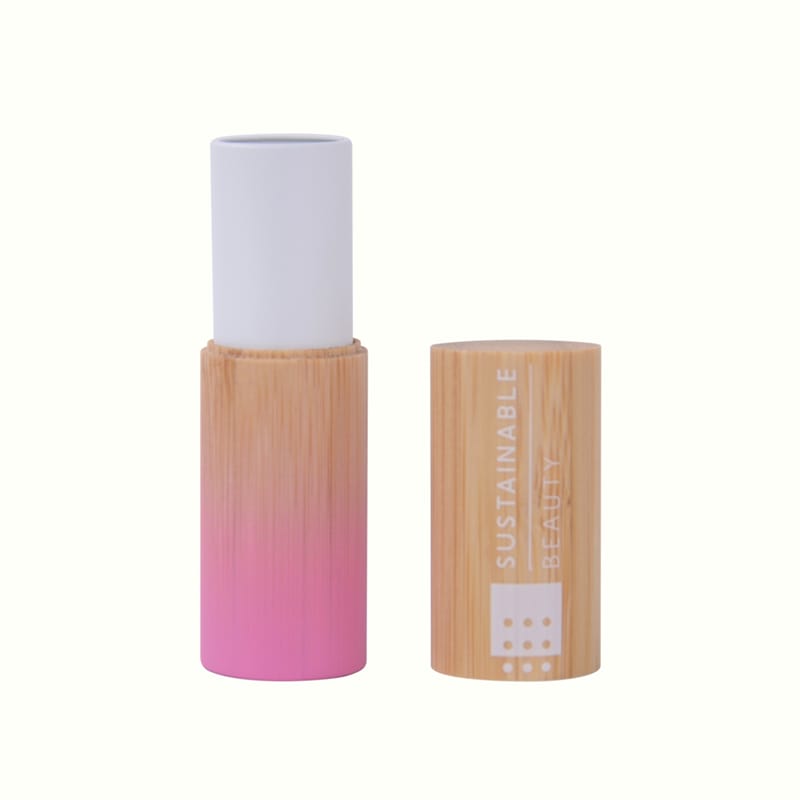Packaging suppliers constantly strive to create the next best container for cosmetic products, hoping they stand out from the crowd. As 71% of consumers report actively choosing products due to the sustainability factor of the product packaging, supplier innovations are becoming largely influenced by environmental consciousness, with recurring themes of refilling, reusing, and recycling coming to light with each new offering. From category expansions to investigations of new materials, BeautyMatter rounds up up the need-to-know launches from the supply side:
Qosmedix: The global supplier recently added two new additions to its pre-existing deodorant container range. The new offerings include a 31-gram black twist-up round container created using 30% PCR polypropylene plastic. The packaging also contains an inner protective cover built into the cap to offer added shielding for the product inside, as well as creating a dome shape during the filling process. As stated by the supplier, this packaging is ideal for brands seeking a more sustainable option than virgin plastic, which is often used for deodorant packaging. The second addition is a 31-gram white child-resistant container featuring a push-down-and-turn cap. The packaging has been created for products including elements such as CBD, which can be potentially harmful to children if used incorrectly. The container has been created with deodorants in mind, but it can also be used to hold body balms and solid sunscreens. With a minimum order quantity, brands wishing to use the packaging for their products are able to customize colors and finish, as well as add logos and decorative elements. Pla Eye Liner Packaging

Inca Packaging: The Italian perfume, cosmetic, and body care packaging manufacturer revealed an array of aluminum-based offerings at PCD Milan. The first, Puro Lipstick, was created in collaboration with Collistar and has a polypropylene base and cap with a refillable aluminum mechanism. The reusable packaging prevents up to 50% of plastic waste compared to the average lipstick case. The business also presented an improved version of its Eco-Designed Luxury Travel-Spray, now made with a 100% recyclable aluminum covering that wraps around a glass bottle, available for wide customization opportunities, including hot foil stamping, pad printing, engraving, and screen printing. Furthermore, the manufacturer announced its new lid for cream containers, made of 100% recyclable aluminum like the other products presented. The company's continued efforts to produce aluminum-based packaging will have a positive impact on the sustainable packaging movement, as producing recycled aluminum requires 95% less energy than creating a product from raw materials, with 75% of all aluminum ever produced still being reused today as a result of its ability to be easily recycled.
Geka: The packaging creators behind popular products from Benefit, The Ordinary, and got2be has revealed its latest activation, a shadow printing service for cosmetics. Said to be more sustainable than regular printing services due to no additional excess foil or ink being used, the service allows for striking packaging that can be easily altered to achieve the best aesthetic suited to an individual brand. The printing service has a 360° design application technique, allowing for complex design elements that can be added to uniquely shaped caps, bottles, and handles. The service also allows for the combination of matte and shiny designs that give maximum visual impact to products. "When supplemented with hot foil stamp or silk screen printing, the opportunities are almost endless, ensuring uniqueness for any cosmetic," says Huong Bister, Head of Global R&D at Geka.
Blue Ocean Closures x Stora Enso x AISA: Three packaging manufacturers have come together to create what is said to be the first paperboard tube with a fiber-based closure, designed with recycling in mind. The fiber-based cap aims to reduce the amount of plastic used in tube packaging and instead encourage an increase in renewable materials. According to the manufacturers, the cap contains over 85% fibers, said to be the largest percentage available in the current tube design market. Methods including pyrolysis (heating of an organic material to deconstruct strong biopolymers) and solvolysis (a thermochemical process leading to depolymerization of composites) can be used to remove the fibers from this packaging, enabling them to be reused and turned into the next packaging offering. "We know that brand owners face challenges when trying to find sustainable alternatives to plastic tubes and believe it is essential to increase fiber content to reach a higher degree of recyclability, reduce carbon footprint, and meet consumer expectations," says Lars Sandberg, CEO of Blue Ocean Closures.

Recyclable Bamboo Make Up Packaging Hoffmann Neopac: The Swiss supplier has unveiled a recyclable mono-material double-barrier tube that is completely recyclable in existing HDPE (high-density polyethylene) streams. The Polyfoil EcoPro tube is said to be composed of 60% food-safe PCR materials that have been incorporated into the shoulder and cap of the packaging. The tube is available with a wall thickness of 0.35mm, a 30% reduction in comparison to regular polyfoil tubes, meaning less material is required, leading to less waste once the product has finished. As well as being a step in the right sustainable direction, the tube is compatible with inline digital and offset printing, which the supplier hopes will encourage manufacturers with a large number of SKUs to make use of the offering. "Our new Polyfoil EcoPro tubes and the overall PCR portfolio expansion are a result of our continued commitment to developing sustainable packaging solutions that reduce environmental impact and support a circular economy," comments Keisha Broadway, head of Sales North America at Neopac.